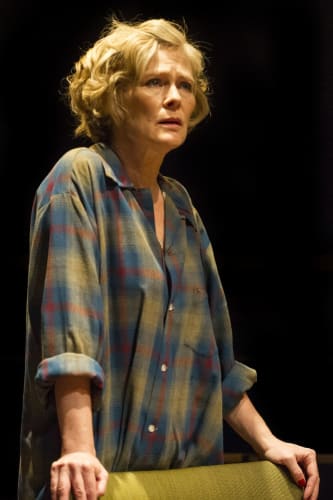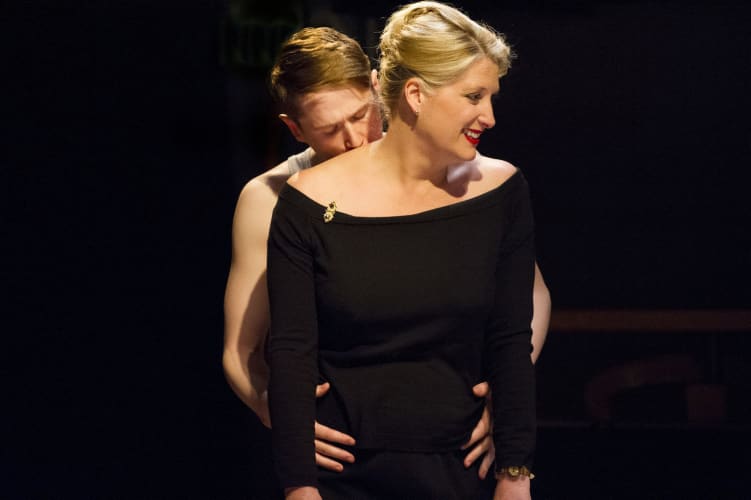Nobel Laureate Doris Lessing’s writing is a testament to 1970’s feminist slogan “The Personal is Political”, which was the title of Carol Hanisch’s 1970 essay.
Echoing themes and sentiments of her masterpiece, The Golden Notebook, the play Each His Own Wilderness puts the connection the personal/political at the centre of dramatic action.
Directed by Orange Tree artistic director Paul Miller, we travel back in time to 1950s Britain and to the story of Myra (Clare Holman), socialist activist and her adult son Tony (Joel MacCormack).
Tony comes back from his two-year national service to find his mother offering a bit more than lodging to the young Sandy (Josh Taylor), Milly’s (Myra’s best friend) son. Sandy is the latest ‘uncle’, one in the string of many Myra’s romantic liaisons.
Not surprisingly, Tony is not happy with his mother’s choices, yet not only about her love life. Tony is an angry young man who, however, longs for a simple comfortable life, unlike Myra who prefers the excitement of fighting for social and political causes.
And here it is where the political becomes personal. Myra is a convinced socialist who would rather like it if her son chose a life as a tramp rejecting the comfort of material goods, while she’d despise Tony’s choice to become an electrician.
The first act is fuelled with verbal debates between mother and son that mask the personal with the political and vice versa. In the meantime, other characters—ex-uncle Mike (Roger Ringrose), ex-uncle Philip (John Lightboy) and Philip’s fiancée Rosemary (Rosie Holden) and finally Sandy’s mother Milly (Susannah Harker)—join in the action and animate Myra’s living room.
The writing is witty with plenty of punchlines, the best being sharply delivered by the young Tony, superbly played by MacCormack. All the others are, in contrast, two-dimensional caricatures. This is the main problem with the play and this production, which, unlike Lessing’s novels, succumb to a political that is as flawed and unconvincing as the characters’ personal convictions.
Myra herself is by far a shadow of the woman Ann was in The Golden Notebook. The underlying hypocrisy of politics and the shallowness of a mother who is too obtuse to understand her son’s needs are too easily justified in name of female independence.
The play offers too little too late. Besides the entertainment value of the first act, the production drags when confrontations between the characters become stale, clever political discussions that lead really nowhere.
Apart from MacCormack, the other actors appear less comfortable in their own skins. Miller’s direction is constrained and his choices not always clear; for instance, why does the young Tony clench every time he hears the gun-shots as recorded in his mother's tape? Most importantly, Miller cannot further unlock Lessing’s writing, which is too tainted by its own idealism.
In spite of May 7 General Election looming, ‘The Personal is Political’, in this case, fails to speak to audiences, nowadays.


